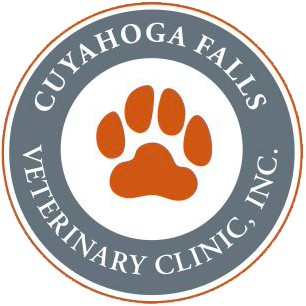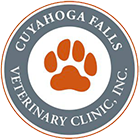It’s springtime in Ohio (no really, it is), and it’s time to start planning your garden. The list of items to grow in your backyard garden is long and varied. Having had no luck with root vegetables in the past, I’m partial to tomatoes, peppers, zucchini, summer squash and herbs. In addition to installing a fence to keep the rabbits from robbing the fruits of your labor, it’s a good idea to prevent your cat and dog friends from raiding the garden.

Most of what we grow in our backyards isn’t toxic to dogs and cats. However, anything consumed in large volumes has the potential to upset our pets, and some items are potentially more troublesome than others.
We’ll start with tomatoes. My kids love ’em for snack time, and I intend to grow enough for them to go pick their own snacks during the summer. The garden is fenced all the way around because my Pug, Betty, likes to eat the green ones, and this isn’t good.
From the Pet Poison Helpline: “The ripened fruit of this plant (the commonly eaten tomato) is considered non-toxic but the green parts of the plant contain solanine, a glycoalkoloid” that when ingested chronically leads to “vomiting, diarrhea, lethargy, weakness, and even confusion.” Typically, when ingested by dogs and cats, it rarely results in toxicity, but if given the choice, Betty wouldn’t stop until she popped.
Peppers, particularly bell peppers, are actually healthy for dogs (in moderation). They make a decent treat, for the dogs who get excited about them. As for the hot peppers, it’s probably best to avoid Cayennes, Habaneros, and the like. (A similar lesson was learned in Chapter 12 of The Adventures of Tom Sawyer.)
Other veggies you don’t have to worry much about: zucchini, summer squash, carrots, green beans, peas, lettuces & sweet potatoes.
But… Keep the onions, chives, garlic behind the fence. Too much of any of these can lead to red blood cell destruction. You’d grab our attention on a phone call if a 30lb. dog, for instance, ate more than 2.5 ounces of garlic. Such a dog needs medical attention.
And keep the corn cobs away from dogs. For some reason, many dogs think eating corn cobs is a fun activity, and these can cause intestinal obstructions.
One final aspect of gardening that is worth mention: working the soil raises the possiblity of exposure to toxoplasma. This is the disease that Ob-Gyns warn pregnant women about, and allegedly more husbands have been relegated to litter box duty for this reason than any other. In reality, a pregnant lady is far more likely to acquire toxoplasma from gardening or handling raw meat than from changing the kitty litter in a home. This is apparently a tidbit that is well known in veterinary circles and less known on the human side of medicine. Wearing gloves, washing hands, practicing overall good hygeine will minimize the risk of toxoplasma exposure.
So enjoy the season, grow those veggies and enjoy them right off the vine or out of the ground. But also make sure your canine and feline friends don’t upset their bellies and ruin your harvest. A good, sturdy fence and a watchful eye ought to make for a good summer of gardening.

